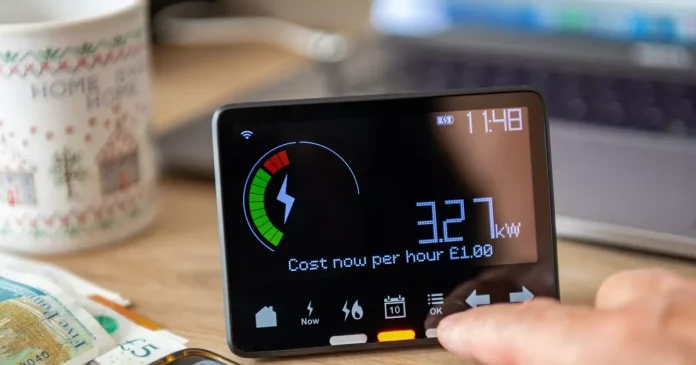Ofgem has announced 24/7 support will be available for any household cut off from power due to a fault with their energy meter. The new measures will come into force from August 2025.
It means energy suppliers must run round-the-clock help services so customers can report a meter fault that has interrupted their supply of electricity or gas. The latest data from Ofgem shows over 80,000 customers seek help for meter fault issues out of hours annually – but the service currently offered by suppliers is not consistent.
For example, some suppliers don’t have regular help available overnight, or during weekends and bank holidays. The proposal was initially considered in 2023, when the regulator introduced a series of new rules suppliers must follow to make it easier for customers to contact them.
Beth Martin, director for consumer protection and competition at Ofgem, said: “Being cut off power can be a stressful and potentially dangerous situation, so consumers must be able to get help day or night if their meter is the cause.
“While we allowed energy companies time to explore a collaborative solution after introducing this proposal, we were disappointed with the progress that has been made. Activating this rule does not mean they cannot continue to explore alternative options, but they must make sure their customers are supported while they do, whether that’s during the day, overnight, or on a weekend.
“Driving up standards in the energy sector remains one of our top priorities, and we will continue to look closely at where improvements can be made.”
It comes after Ofgem set out plans last month to boost smart meter standards and compensation, which could see customers compensated if their supplier fails to offer a smart meter installation appointment more quickly, or take quick action to fix issues reported by a customer.
Suppliers are currently required to make an automatic payment of £40 if they fail to meet minimum standards, including making and keeping appointments, investigating and fixing or replacing credit or prepayment meter faults, and switching supplier within five working days.
WHATSAPP GROUP: Get money news and top deals straight to your phone by joining our Money WhatsApp group here. We also treat our community members to special offers, promotions, and adverts from us and our partners. If you don’t like our community, you can check out any time you like. If you’re curious, you can read our Privacy Notice.
NEWSLETTER: Or sign up to the Mirror’s Money newsletter here for all the best advice and shopping deals straight to your inbox.
It comes after the Ofgem energy price cap rose by 6.4% this month. It means the average dual fuel household paying by direct debit has seen their yearly energy bill rise to £1,849. But your bill is still based on how much gas and electricity you use.
The price cap does not put a limit on how much you can pay for energy – instead, it sets the maximum unit price you can be charged for gas and electricity, as well as the maximum daily standing charge, which is a fixed fee that you pay to be connected to the grid.
It applies to standard variable rate (SVR) tariffs, so these are generally ones where you’ve not chosen to fix into a specific energy deal. There are around 22 millions homes currently covered by the price cap. Ofgem bases its price cap figure on how much energy it assumes the average household uses every year.
Ofgem says the typical home uses 2,700 kwh of electricity and 11,500 kWh of gas over 12 months. Even though the price cap figure represents a yearly bill, Ofgem actually updates its price cap every three months, so the new rates will remain in place until June 30, when it will then be revised again. It is updated every three months so Ofgem can reflect changing wholesale costs.
At Reach and across our entities we and our partners use information collected through cookies and other identifiers from your device to improve experience on our site, analyse how it is used and to show personalised advertising. You can opt out of the sale or sharing of your data, at any time clicking the “Do Not Sell or Share my Data” button at the bottom of the webpage. Please note that your preferences are browser specific. Use of our website and any of our services represents your acceptance of the use of cookies and consent to the practices described in our Privacy Notice and Cookie Notice.


